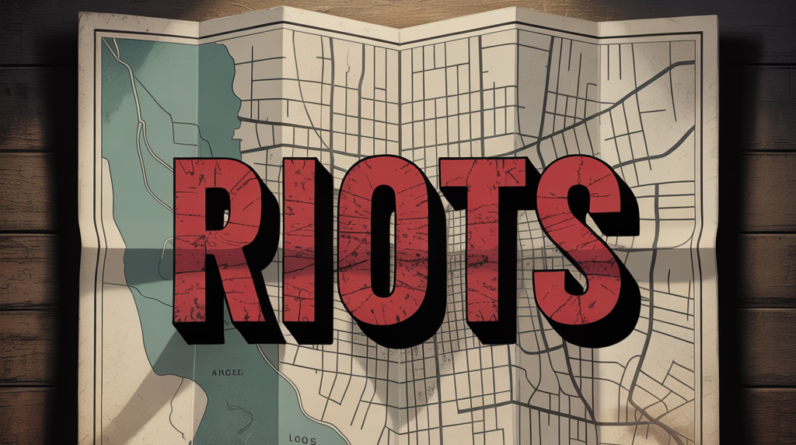Unions are promising to name and shame companies they say are price gouging Australian families. Airlines, supermarkets and banks are all under scrutiny in an inquiry headed by Australia’s former competition watchdog boss.
Price Gouging Probe: Big Business Exploiting Inflation to Boost Profits
The ongoing investigation into price gouging by big businesses, led by former ACCC boss Allan Fels, aims to uncover the tactics employed to exploit inflation and boost profits.
With over 600 submissions reflecting public concern, this inquiry has gained significant attention.
As an interim report is expected by the end of the year, this article will delve into the impact on individuals, wage versus price rises debate, disputes surrounding the credibility of the inquiry, and the role of the media in addressing the cost-of-living crisis.
Calls for government intervention and regulation to address this pressing issue will also be explored.
Key Takeaways
- Former ACCC boss Allan Fels is leading an inquiry into price gouging, focusing on industries like banks, insurance companies, supermarkets, and energy providers.
- The inquiry aims to determine the causes of rising prices and increasing profits, with evidence of big businesses using rising inflation as an excuse to disguise profit hikes.
- Testimony from individuals, such as a Melbourne nurse named Danielle, highlights the struggles faced by individuals due to rising bills without justification.
- Increased costs like wages are not the main cause of recent price spikes, with profits accounting for more than half of price rises above inflation.
The Scope of the Price Gouging Inquiry
The scope of the price gouging inquiry, led by former ACCC boss Allan Fels, aims to determine the causes of rising prices and increasing profits in industries like banks, insurance companies, supermarkets, and energy providers, with a focus on the tactics employed by big businesses to exploit inflation and boost their own financial gains.
The inquiry seeks to uncover the strategies used by these businesses to take advantage of inflationary pressures and disguise profit hikes. It will examine the role of reduced competition and market power in allowing businesses to get away with price increases.
Additionally, the inquiry will investigate how world events, such as the war in Ukraine and the COVID-19 pandemic, are used as excuses for high prices.
Examining Big Business Tactics in Inflated Markets
Examining big business tactics in inflated markets reveals the strategies employed by corporations to exploit price inflation and maximize profits.
Inflated markets provide an opportune environment for businesses to raise prices without drawing significant scrutiny. By taking advantage of rising inflation, companies can disguise profit hikes and justify higher prices to consumers.
This is particularly concerning as evidence shows that profits account for more than half of price rises above inflation, while labor costs only account for a third. Moreover, the reduction in competition allows businesses to get away with price increases, further exacerbating the issue.
It is crucial to address these tactics in order to protect consumers from unjustifiable price hikes and ensure transparency and accountability in corporate practices.
Unmasking the True Causes of Rising Prices and Profits
Identifying and analyzing the underlying factors behind the surge in prices and profits is essential in uncovering the truth and addressing the root causes of the issue. The ongoing price gouging probe aims to shed light on the tactics employed by big businesses to exploit inflation and bolster their profits.
With the inquiry examining industries such as banks, insurance companies, supermarkets, and energy providers, it becomes crucial to determine the reasons behind rising prices and increasing profits. Evidence suggests that businesses are using rising inflation as an excuse to disguise profit hikes, with reduced competition enabling them to get away with price increases.
World events like the war in Ukraine and the COVID-19 pandemic are also being used as justifications for high prices. By understanding the true causes of rising prices and profits, appropriate measures can be taken to ensure transparency, accountability, and fair pricing practices.
The Impact of Price Gouging on Individuals and Households
Price gouging has had a significant impact on individuals and households, causing financial distress and compromising their ability to meet basic needs. Rising prices without justification have led to increased bills, leaving individuals struggling to make ends meet. Some have even considered taking on a second job just to cover their expenses.
This financial strain has forced individuals to compromise in other areas of their lives, sacrificing their quality of life to pay for necessities. Testimonies from affected individuals highlight the vulnerability they feel and the distress caused by price gouging.
With stagnant wages and rising living expenses, the cost-of-living crisis is exacerbating the financial strain on households. It is crucial for the media to address this issue, raising awareness and holding businesses accountable for their actions.
Moreover, there is a growing call for government intervention and regulation to mitigate the impact of price gouging and ensure affordability and fairness for all.
Debunking the Wage Vs Price Rises Argument
Contrary to popular belief, the relationship between wages and price rises is not accurately portrayed, as profits play a significant role in driving up prices. While some argue that increased wages lead to higher prices, recent evidence suggests otherwise.
Inflation reached a 30-year high before easing, with profits accounting for more than half of price rises above inflation. Labour costs, on the other hand, only account for a third of price increases.
Big business groups dispute these claims, citing rising input costs due to supply shortages. However, the credibility of these arguments is being questioned, with the mining industry being the only sector reporting increased profits.
As the discussion on wage versus price rises continues, it is crucial to consider the role of profits and the need for transparency and accountability in financial reporting.
Disputes and Criticisms Surrounding the Inquiry
Amid ongoing debates and frequent disputes, some industry representatives continue to criticize the credibility of the inquiry, while others question its methodology and effectiveness.
Big business groups dispute the claims made by the inquiry, with the Australia Chamber of Commerce and Industry going as far as calling it a ‘Punch and Judy show’. They argue that the inquiry lacks credibility and fails to consider the input costs that have risen due to supply shortages.
However, the inquiry, commissioned by the Australian Council of Trade Unions (ACTU), aims to examine price gouging in industries such as banks, insurance companies, supermarkets, and energy providers. Its objective is to determine the causes of rising prices and increasing profits, with allegations that big businesses are using rising inflation as an excuse to disguise profit hikes.
The inquiry’s interim report is due by the end of the year, with the hope that it will shed light on the issues at hand and provide recommendations for addressing the cost-of-living crisis.
The Media’s Role in Addressing the Cost-of-Living Crisis
How can the media effectively contribute to addressing the cost-of-living crisis through responsible reporting and raising public awareness?
The media plays a crucial role in addressing the cost-of-living crisis by providing responsible reporting and raising public awareness. Through investigative journalism, the media can uncover corporate practices that contribute to rising prices and income inequality.
By analyzing and explaining economic issues, collaborating with experts and economists, and holding businesses and policymakers accountable for their actions, the media can provide a platform for public discourse and awareness. Responsible reporting on economic trends and their impact on everyday life is essential in informing the public and fostering public demand for action.
Additionally, the media can play a significant role in advocating for government intervention and regulation to address the cost-of-living crisis, by highlighting the importance of transparency, accountability, and fairness in financial reporting and corporate responsibility.
Calls for Government Intervention and Regulation
The recent cost-of-living crisis has sparked widespread calls for immediate government intervention and regulation to address rising prices and income inequality.
Many individuals and households are experiencing the strain of increasing living expenses coupled with stagnant wages, resulting in a significant financial burden. As the cost of necessities continues to rise, individuals are finding it increasingly challenging to meet their basic needs and maintain a decent standard of living.
This crisis has not only impacted people’s financial well-being but also their mental health. There is a growing concern about the long-term consequences of this socio-economic inequality. In response, there is a demand for transparency and accountability in financial reporting, as well as calls for the media to play a role in addressing this crisis by uncovering corporate practices and raising awareness.
The debate on the role of the state in ensuring affordability and fairness is intensifying, with discussions around potential policies to tackle rising prices and income inequality.
Implications for Socio-Economic Inequality and Long-Term Consequences
An examination of the cost-of-living crisis reveals significant implications for socio-economic inequality and long-term consequences. The rising cost of living, coupled with stagnant wages, has placed immense financial strain on households and individuals. Basic needs are becoming increasingly difficult to meet, leading to increased debt levels and a compromised standard of living.
The impact on mental health and well-being cannot be ignored. This crisis has the potential to exacerbate existing socio-economic inequalities, as those who are already disadvantaged are further marginalized.
It is imperative for the media to play a role in addressing this crisis by reporting on economic trends, uncovering corporate practices, and holding businesses and policymakers accountable. Government intervention and regulation are necessary to ensure affordability and fairness, and to tackle rising prices and income inequality. The public demands action, and political responses to the crisis will be crucial in shaping the future trajectory of socio-economic equality.
Conclusion
In conclusion, the ongoing price gouging probe has shed light on the tactics employed by big businesses to exploit inflation and increase profits. The impact of rising prices and unjustified profit hikes has been felt by individuals and households, contributing to the cost-of-living crisis. Debates surrounding wage versus price rises and criticisms of the inquiry have added complexity to the issue. Calls for government intervention and regulation are necessary to address this pressing problem and mitigate socio-economic inequality in the long term.
Albion News is a great place to find informative, up-to-date news articles. We provide a wide range of unique articles that offer an interesting perspective on current events from around the world and from various different sources. You can easily search for the topics that matter most to you and explore in-depth pieces that provide insight into the issues and important debates occurring today. Albion News helps you stay informed with carefully researched and credible stories!





